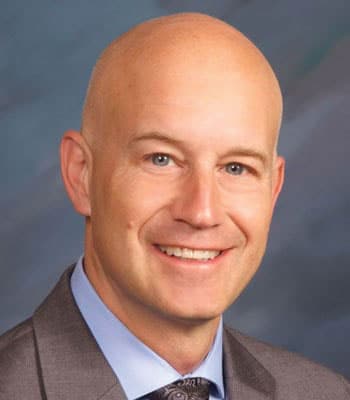CEO Roundtable: Post-COVID, pre-recession? Natural-foods leaders navigate economic tightrope
BOULDER — The COVID-19 pandemic highlighted the importance of healthy living and boosted the profile of many Boulder-area natural and organic food companies, but the ensuing macroeconomic environment — inflation, interest-rate hikes, supply-chain backups, the threat of recession — has industry leaders feeling on edge.
Has Boulder ceded its title as the nation’s natural and organic mecca? What can the industry do to ensure the continued success of its existing operators while fostering the next generation of innovative companies? These questions were on the minds of industry leaders during BizWest’s Natural and Organic CEO Roundtable held Tuesday at the offices of the Boulder Chamber.
“What does it take to keep the businesses and the vibe we’ve built in Boulder?” Boulder Economic Council executive director Scott Sternberg wondered aloud to the group on hand.
The industry has faced a “really turbulent 12 to 18 months” that have featured “massive price increases” for both manufacturers and end users, Sunrise Strategic Partners founder Steve Hughes said.
For procedures of food, those increases have become especially acute as climate change has wreaked havoc on certain crop harvest, Rowdy Mermaid CEO Jamba Dunn said.
“What do you do when you build a line around a fruit flavor and it goes up by 6,000%?” he said.
Locking in longer-term contracts with suppliers can help ease the strain of price volatility, but there’s no guarantee against the impacts of inflation.
“Swings in prices can take a business down in a very short time,” Mulay Sausage Corp. founder Loree Mulay Weisman said.
Money, like supplies, has also become more expensive as interest rates rise and investors become antsy.
“Now that money is no longer free,” access to capital is an “existential” issue for young and growing companies, Summit Venture Management managing partner John Grubb said.
Still, local natural and organic companies are finding investment partners.
Terraseed Inc. CEO Maria Cebrian Fernandez said her firm just raised a seed round to expand offerings.
“I’m very excited for that to start making an impact,” she said.
Providing products to consumers becomes especially challenging when supplies are slow to be delivered, a situation that highlights the importance of solid relationships with suppliers.
“We’re extending terms more than we ever have and trying to be as patient as possible,” Fresca Foods CEO Brandon Viar said.
Keen One Foods CEO Christopher Algea agreed and said, “These delays … are new.”
Logistics are more important than ever, he said. “You have to have secondary sources because you have to fulfill orders for customers.”
Like many industries, the natural products space has struggled with recruiting and retaining workers, but several roundtable participants said the situation is beginning to improve.
“It’s just started to turn in the last four to eight weeks and is getting a little better than it has been in the last 18 months,” Claremont Foods CEO Alex Cioth said.
To be sure, companies are paying more for labor, but that’s not necessarily an all-bad thing in the eyes of every industry leader.
“This is payback for decades of us taking advantage of blue-collar labor,” Appleooz CEO Mark Wood said.
Economic headwinds have coincided with the rise of other organic hotspots, some of which are in much lower-cost regions such as Texas.
“When I got to Boulder in the ’90s, it was the Silicon Valley of natural foods,” Hughes said. “That’s shifted to Austin.”
Even if there are other regions who have grown their profile in recent years, the Boulder area is still a special place for the industry, which, despite the challenges, still remains a force with which to be reckoned.
“This is not zero sum,” Grubb said. “The fact that Austin is thriving does not subtract a dime from Boulder.”
Naturally Boulder executive director Bill Capsalis agreed: “Overall there’s a lot of optimism. [Companies] are still growing in this space.” he said. “Innovation is still occurring, people are optimistic and operating more omnichannel than ever before.”
Sponsor attendees present at Tuesday’s BizWest CEO Roundtable were Plante Moran partner Jeremy Wilson, Bank of Colorado commercial loan officer Jon Svoboda and Berg Hill Greenleaf Ruscitti marketing director Ashley Cawthorne.
Source: BizWest





